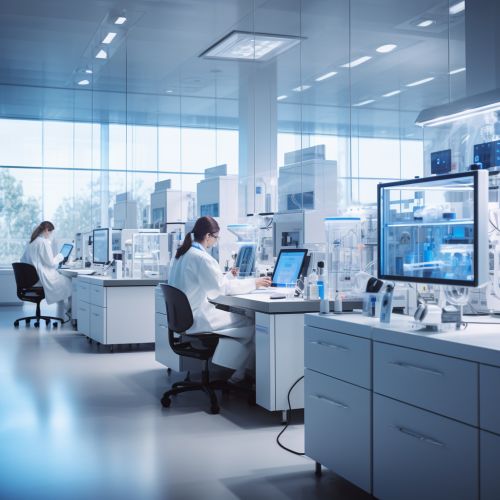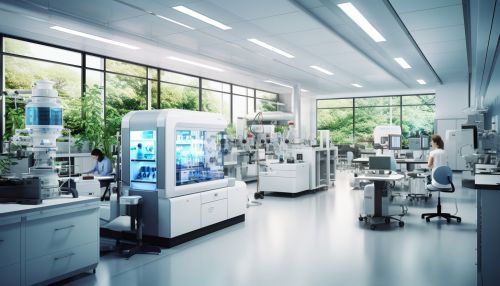Clinical Laboratory
Overview
A clinical laboratory is a healthcare facility where various types of specimens, including blood and tissue samples, are analyzed to obtain information about a patient's health. These laboratories play a crucial role in the detection, diagnosis, and treatment of diseases. They provide data needed to evaluate the effectiveness of treatment, monitor the course of chronic diseases, and conduct research to develop new treatments and therapies.
Types of Clinical Laboratories
Clinical laboratories can be broadly classified into three types: hospital laboratories, reference laboratories, and physician office laboratories.
Hospital Laboratories
Hospital laboratories are located within a hospital and perform most of the tests required by the hospital's patients. They are typically responsible for performing urgent analyses, and they often have facilities for surgical pathology, cytology, autopsy pathology, and sometimes forensic pathology.
Reference Laboratories
Reference laboratories are independent labs that perform tests not typically conducted in hospital laboratories. These labs often specialize in a specific area of testing and receive samples from various sources, including hospitals, clinics, and other laboratories.
Physician Office Laboratories
Physician office laboratories (POLs) are located in physicians' offices. POLs typically perform simple, rapid-response tests while the patient is in the office, allowing for immediate treatment decisions.
Roles and Functions
Clinical laboratories perform a wide range of tests and analyses, which can be grouped into several disciplines, including clinical chemistry, hematology, microbiology, immunology, and molecular diagnostics.
Clinical Chemistry
Clinical chemistry involves the analysis of bodily fluids for chemical components such as blood glucose, electrolytes, enzymes, hormones, lipids (fats), and proteins. These tests can help diagnose and manage the treatment of diseases such as diabetes, heart disease, and kidney disease.
Hematology
Hematology is the study of blood, blood-forming organs, and blood diseases. It involves the analysis of blood cells and coagulation parameters to diagnose diseases such as anemia, leukemia, and hemophilia.
Microbiology
Microbiology involves the identification of infectious agents, including bacteria, viruses, fungi, and parasites. This discipline also includes the testing of potential treatments and the monitoring of the effectiveness of antibiotic therapies.
Immunology
Immunology involves the study of the immune system and its response to foreign substances. Tests in this discipline can diagnose conditions such as allergies, autoimmune diseases, and immunodeficiency disorders.
Molecular Diagnostics
Molecular diagnostics involves the detection of genetic material or proteins associated with a specific health condition or disease. This discipline is increasingly important in personalized medicine, where treatment is tailored to the individual patient based on their genetic makeup.
Clinical Laboratory Personnel
Clinical laboratories are staffed by a variety of professionals, each with specialized training and responsibilities.
Pathologists
Pathologists are physicians who interpret and diagnose the changes caused by disease in tissues and body fluids. They often serve as directors of clinical laboratories.
Clinical Laboratory Scientists
Clinical laboratory scientists (CLS), also known as medical technologists, perform a wide range of laboratory tests and interpret the results. They may specialize in a specific area of laboratory medicine.
Clinical Laboratory Technicians
Clinical laboratory technicians, also known as medical technicians, perform routine laboratory tests under the supervision of a CLS or pathologist.
Phlebotomists
Phlebotomists are trained to draw blood from patients for clinical or medical testing, transfusions, donations, or research.
Quality Control and Laboratory Safety
Quality control and safety are critical aspects of clinical laboratory operations. Laboratories must adhere to strict standards to ensure the accuracy and reliability of their tests. This includes the use of control materials that mimic patient samples, regular equipment calibration, and participation in external quality control programs.
Laboratory safety involves protecting staff from potential hazards, including infectious agents, chemicals, and physical hazards. This includes the use of personal protective equipment, proper waste disposal, and adherence to safety procedures.


